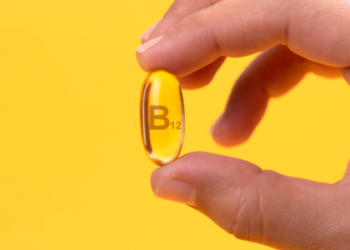
Introduction
In recent years, there has been a growing interest in the use of injectable vitamin D as a means of supplementing this essential nutrient. While oral vitamin D supplements have been widely available and commonly used, the emergence of injectable formulations has opened up new possibilities for individuals who may have difficulty absorbing or tolerating oral supplements. This article aims to explore the benefits and considerations associated with the rise of injectable vitamin D.
Understanding Vitamin D
Vitamin D, often referred to as the “sunshine vitamin,” is a crucial nutrient that plays a vital role in maintaining overall health and well-being. It helps the body absorb calcium and phosphorus, essential for maintaining strong bones and teeth. Additionally, vitamin D supports proper immune function, regulates mood, and plays a role in cardiovascular health. The primary source of vitamin D is through exposure to sunlight, but it can also be obtained through dietary sources and supplements.
Challenges with Oral Vitamin D Supplements
While oral vitamin D supplements have long been the go-to option for individuals looking to boost their vitamin D levels, they are not without their challenges. Some people may have difficulty absorbing oral supplements due to certain medical conditions or gastrointestinal disorders. Additionally, individuals who struggle with swallowing pills or have digestive issues may find it challenging to take oral supplements consistently, compromising their ability to maintain adequate vitamin D levels.
Injectable Vitamin D: An Alternative Solution
Injectable vitamin D has emerged as an alternative solution for those who face challenges with oral supplementation. This method involves administering the vitamin directly into the muscle or subcutaneous tissue, bypassing the digestive system. Injectable vitamin D offers several potential benefits, including:
- Enhanced Absorption: By bypassing the digestive system, injectable vitamin D may be better absorbed by the body, leading to increased bioavailability and effectiveness.
- Improved Compliance: For individuals who struggle with oral supplements, injectable vitamin D provides an option that eliminates the need for swallowing pills, promoting better compliance and consistent use.
- Faster Results: Injectables may provide faster results compared to oral supplements since they do not have to go through the digestive process before being absorbed and utilized by the body.
Considerations for Injectable Vitamin D Use
While injectable vitamin D offers potential advantages, there are important considerations to keep in mind:
- Medical Supervision: Injectable vitamin D should only be administered under the guidance and supervision of a healthcare professional. They can assess your individual needs, determine the appropriate dosage, and ensure safe administration.
- Cost and Accessibility: Injectable formulations of vitamin D may be more expensive compared to oral supplements. Additionally, availability may vary depending on your location and healthcare provider.
- Side Effects and Risks: As with any medical intervention, there are potential side effects and risks associated with injectable vitamin D. These can include injection site reactions, allergic reactions, and the risk of incorrect administration if not performed by a trained professional.
- Individual Considerations: It is essential to consider your specific health needs and circumstances when deciding on the best method of vitamin D supplementation. Consulting with a healthcare professional can help determine if injectable vitamin D is suitable for you.
Conclusion
The rise of injectable vitamin D provides an alternative option for individuals who face challenges with oral supplementation. It offers potential benefits such as enhanced absorption, improved compliance, and faster results. However, it is crucial to approach injectable vitamin D with caution, considering factors such as medical supervision, cost, accessibility, and potential side effects. Ultimately, consulting with a healthcare professional is the best way to determine the most suitable method of supplementing vitamin D based on individual needs and circumstances.







